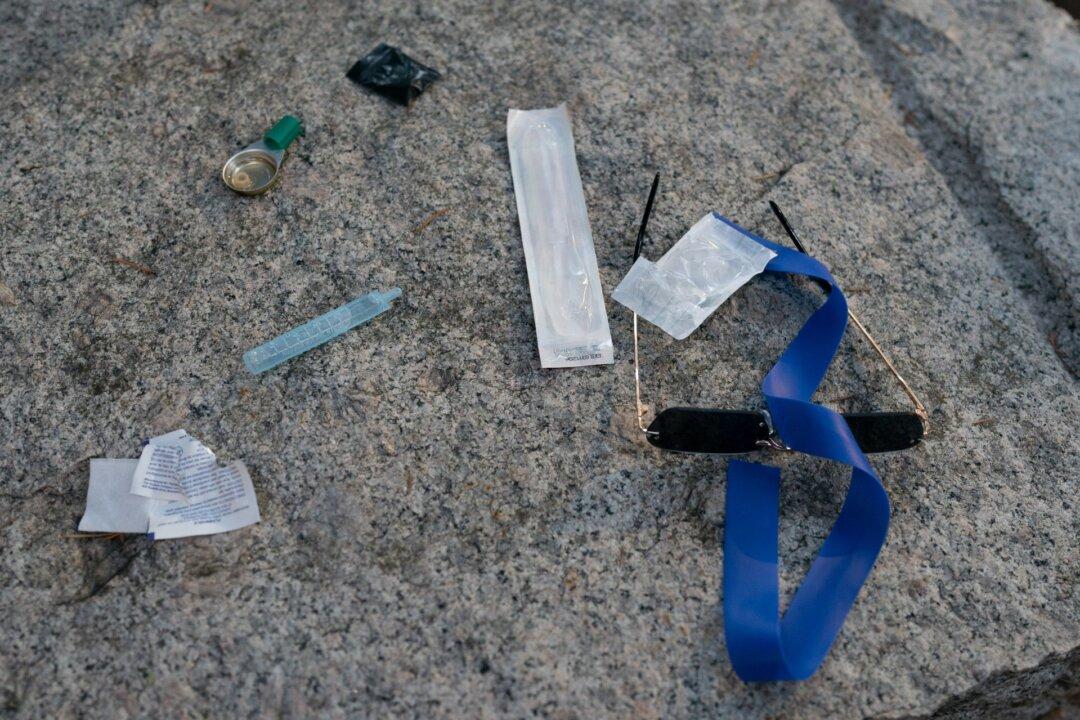Since British Columbia decriminalized the possession of small amounts of hard drugs in January, police have been unable to stop drug use in public places, including where children gather.
Although earlier this month the province announced a new ban on illicit drugs within 15 metres of playgrounds, city councillors and mayors across B.C. have said it’s not enough. They say the ban needs to extend to other places children are exposed to drug use and used needles.





